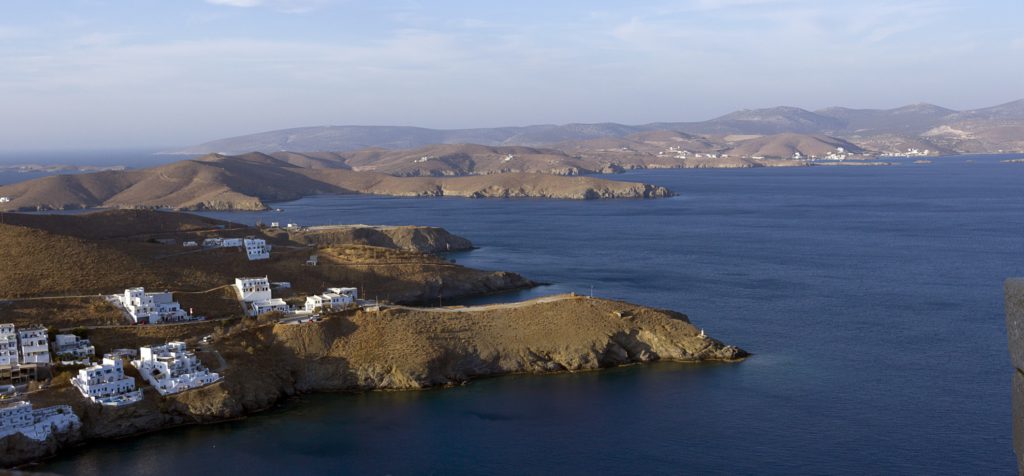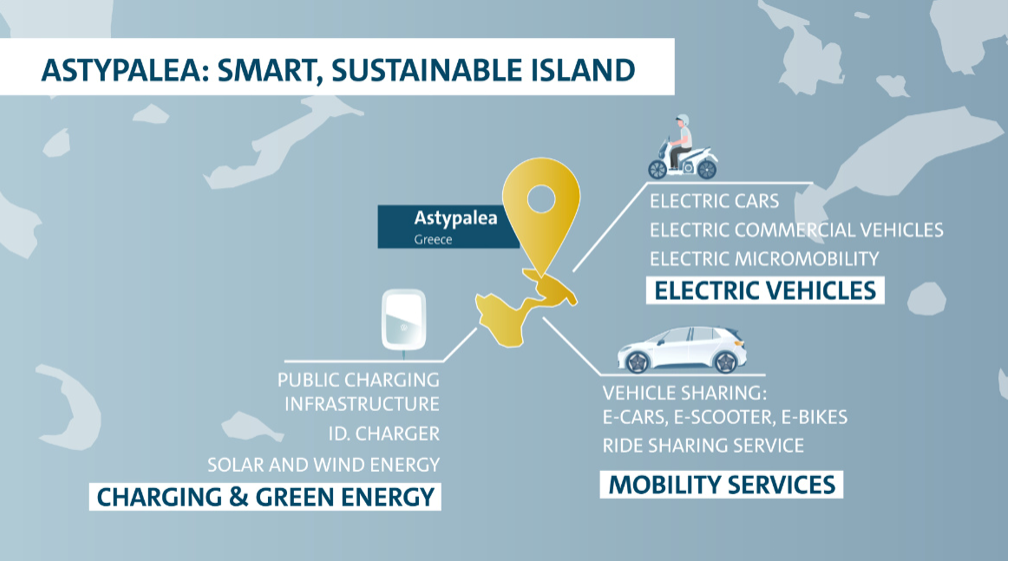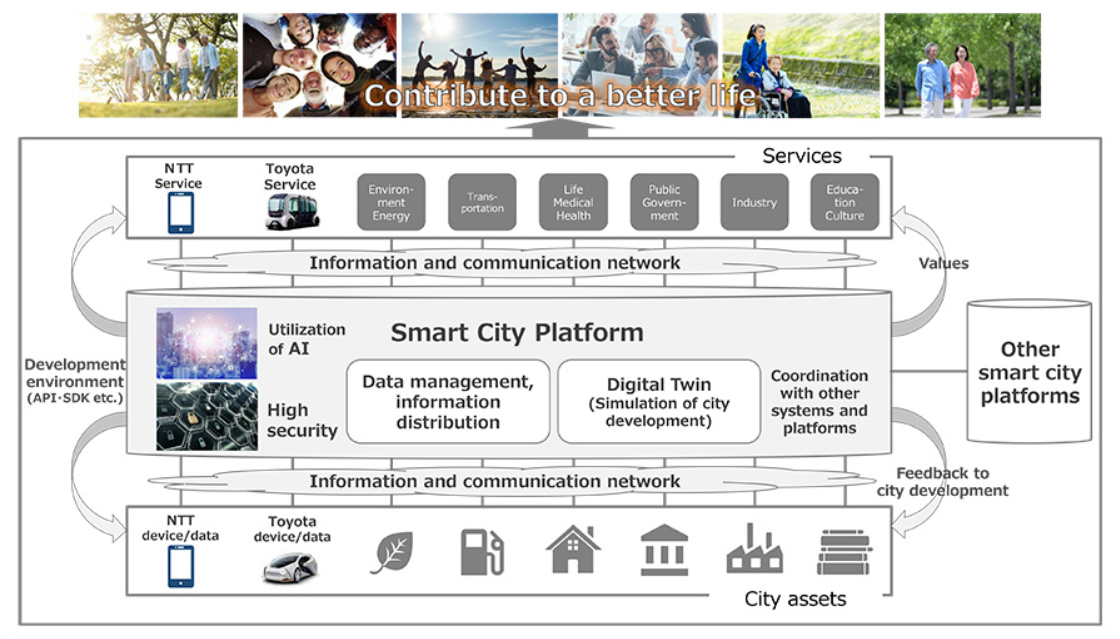VW and Greece to create model island for climate-neutral mobility
13 November 2020

13 November 2020
The Volkswagen Group (VW) and Greece have agreed to establish a mobility system on the Mediterranean island of Astypalea. The transport system will transition to electric vehicles and renewable power generation, meaning Astypalea will ultimately become a model island for climate-neutral mobility.
A memorandum of understanding was signed in Wolfsburg and Athens on 4 November by Konstantinos Fragogiannis, deputy minister of foreign affairs for economic diplomacy and openness, and Herbert Diess, CEO of the Volkswagen Group.
The project will initially run for six years and includes an all-electric year-round ridesharing service designed to take the minimal local bus service to a new level. Together with local partners, part of the traditional vehicle-rental business will be transformed into a vehicle-sharing service, offering e-scooters from the VW’s SEAT brand and e-bikes in addition to electric cars. In total, some 1,000 electric vehicles will replace about 1,500 vehicles with combustion engines.
Commercial vehicles from local businesses as well as utility vehicles on the island – such as police vehicles, emergency services transport and public sector fleets – will also be electrified. VW will install its Elli chargers across the island to ensure a comprehensive charging infrastructure, offering about 230 private and several public charging points.
At present, energy demand on Astypalea is almost entirely met by fossil fuel sources. The island aspires to become a pioneer for sustainable tourism over the coming years and is therefore backing sustainable mobility.
 Source: Volkswagen Group
The prime minister of Greece, Kyriakos Mitsotakis, said: ′I strongly believe in partnerships. Governments cannot deliver on their own and the private sector is not the answer to every question. That is why this ambitious endeavour is the result of the close partnership between the Greek state and Volkswagen Group. A world leader in the automotive industry that aims at making its fleet of vehicles and the company carbon-neutral by 2050; coming together with a European nation in full transformation mode.’
Early in June, Mitsotakis announced a ′National Electricity Transfer Plan’ to promote electromobility in the country. This consists of subsidies for the purchase of electric cars and light commercial vehicles, tax breaks and expansion of the charging infrastructure.
Integral part of VW’s ′goTOzero’ strategy
The Volkswagen Group is committed to the goals of the Paris Agreement. The Group is aiming to become climate neutral by 2050 and has drawn up the ′goTOzero’ sustainability strategy to achieve this target. The project on Astypalea is an integral part of this strategy and will serve as a blueprint for the total decarbonisation of mobility. Under the umbrella of the Volkswagen Group, several brands are engaged in this endeavour, including Volkswagen, SEAT, Volkswagen Commercial Vehicles, the energy service provider Elli and UMI Urban Mobility International with the We Share brand.
′Politics, business and society have a common responsibility to limit climate change. Our long-term goal is climate-neutral mobility for everyone. With the Astypalea project, we will explore how to realise that vision already today. E-mobility and smart mobility will improve the quality of life, while contributing to a carbon-neutral future,’ commented Diess.
VW will invest some €33 billion in e-mobility in the next five years and launch about 75 new electric models by 2029. The carmaker has just started to roll out its electric ID. family to the market, with the introduction of several new models planned over the next few years, in addition to the ID.3 compact hatchback and the ID.4 compact SUV.
Quiet in Toyota’s Woven City
Back in March, Toyota Motor Corporation (Toyota) and Nippon Telegraph and Telephone Corporation (NTT) announced a plan to develop smart cities and software capabilities. They outlined a 200 billion yen (€1.6 billion) investment in their relationship at a conference on 24 March.
Toyota and NTT will develop a data platform that will amass and analyse information from vehicles, homes and public institutions. This will then be used to form new services, focusing on transportation, energy usage and health.
Source: Volkswagen Group
The prime minister of Greece, Kyriakos Mitsotakis, said: ′I strongly believe in partnerships. Governments cannot deliver on their own and the private sector is not the answer to every question. That is why this ambitious endeavour is the result of the close partnership between the Greek state and Volkswagen Group. A world leader in the automotive industry that aims at making its fleet of vehicles and the company carbon-neutral by 2050; coming together with a European nation in full transformation mode.’
Early in June, Mitsotakis announced a ′National Electricity Transfer Plan’ to promote electromobility in the country. This consists of subsidies for the purchase of electric cars and light commercial vehicles, tax breaks and expansion of the charging infrastructure.
Integral part of VW’s ′goTOzero’ strategy
The Volkswagen Group is committed to the goals of the Paris Agreement. The Group is aiming to become climate neutral by 2050 and has drawn up the ′goTOzero’ sustainability strategy to achieve this target. The project on Astypalea is an integral part of this strategy and will serve as a blueprint for the total decarbonisation of mobility. Under the umbrella of the Volkswagen Group, several brands are engaged in this endeavour, including Volkswagen, SEAT, Volkswagen Commercial Vehicles, the energy service provider Elli and UMI Urban Mobility International with the We Share brand.
′Politics, business and society have a common responsibility to limit climate change. Our long-term goal is climate-neutral mobility for everyone. With the Astypalea project, we will explore how to realise that vision already today. E-mobility and smart mobility will improve the quality of life, while contributing to a carbon-neutral future,’ commented Diess.
VW will invest some €33 billion in e-mobility in the next five years and launch about 75 new electric models by 2029. The carmaker has just started to roll out its electric ID. family to the market, with the introduction of several new models planned over the next few years, in addition to the ID.3 compact hatchback and the ID.4 compact SUV.
Quiet in Toyota’s Woven City
Back in March, Toyota Motor Corporation (Toyota) and Nippon Telegraph and Telephone Corporation (NTT) announced a plan to develop smart cities and software capabilities. They outlined a 200 billion yen (€1.6 billion) investment in their relationship at a conference on 24 March.
Toyota and NTT will develop a data platform that will amass and analyse information from vehicles, homes and public institutions. This will then be used to form new services, focusing on transportation, energy usage and health.
 Source: Toyota
The platform will be introduced in Toyota’s Woven City project near Mount Fuji. The prototype hydrogen-powered, zero-emission metropolitan area is being used to develop incorporated autonomous-driving technologies, AI, robotics and smart homes. The ultimate aim is to have an interconnected network of vehicles, houses and communities.
In an emailed response to Autovista Group, a Toyota spokesperson said ′There has been no major announcement on Woven City since it was unveiled at CES 2020. As the explanation at that time was a comprehensive overview, we are not expecting any more in the short term. We cannot provide any more at this point, but there is a lot of interest in this project.’
Source: Toyota
The platform will be introduced in Toyota’s Woven City project near Mount Fuji. The prototype hydrogen-powered, zero-emission metropolitan area is being used to develop incorporated autonomous-driving technologies, AI, robotics and smart homes. The ultimate aim is to have an interconnected network of vehicles, houses and communities.
In an emailed response to Autovista Group, a Toyota spokesperson said ′There has been no major announcement on Woven City since it was unveiled at CES 2020. As the explanation at that time was a comprehensive overview, we are not expecting any more in the short term. We cannot provide any more at this point, but there is a lot of interest in this project.’
 Source: Volkswagen Group
The prime minister of Greece, Kyriakos Mitsotakis, said: ′I strongly believe in partnerships. Governments cannot deliver on their own and the private sector is not the answer to every question. That is why this ambitious endeavour is the result of the close partnership between the Greek state and Volkswagen Group. A world leader in the automotive industry that aims at making its fleet of vehicles and the company carbon-neutral by 2050; coming together with a European nation in full transformation mode.’
Early in June, Mitsotakis announced a ′National Electricity Transfer Plan’ to promote electromobility in the country. This consists of subsidies for the purchase of electric cars and light commercial vehicles, tax breaks and expansion of the charging infrastructure.
Integral part of VW’s ′goTOzero’ strategy
The Volkswagen Group is committed to the goals of the Paris Agreement. The Group is aiming to become climate neutral by 2050 and has drawn up the ′goTOzero’ sustainability strategy to achieve this target. The project on Astypalea is an integral part of this strategy and will serve as a blueprint for the total decarbonisation of mobility. Under the umbrella of the Volkswagen Group, several brands are engaged in this endeavour, including Volkswagen, SEAT, Volkswagen Commercial Vehicles, the energy service provider Elli and UMI Urban Mobility International with the We Share brand.
′Politics, business and society have a common responsibility to limit climate change. Our long-term goal is climate-neutral mobility for everyone. With the Astypalea project, we will explore how to realise that vision already today. E-mobility and smart mobility will improve the quality of life, while contributing to a carbon-neutral future,’ commented Diess.
VW will invest some €33 billion in e-mobility in the next five years and launch about 75 new electric models by 2029. The carmaker has just started to roll out its electric ID. family to the market, with the introduction of several new models planned over the next few years, in addition to the ID.3 compact hatchback and the ID.4 compact SUV.
Quiet in Toyota’s Woven City
Back in March, Toyota Motor Corporation (Toyota) and Nippon Telegraph and Telephone Corporation (NTT) announced a plan to develop smart cities and software capabilities. They outlined a 200 billion yen (€1.6 billion) investment in their relationship at a conference on 24 March.
Toyota and NTT will develop a data platform that will amass and analyse information from vehicles, homes and public institutions. This will then be used to form new services, focusing on transportation, energy usage and health.
Source: Volkswagen Group
The prime minister of Greece, Kyriakos Mitsotakis, said: ′I strongly believe in partnerships. Governments cannot deliver on their own and the private sector is not the answer to every question. That is why this ambitious endeavour is the result of the close partnership between the Greek state and Volkswagen Group. A world leader in the automotive industry that aims at making its fleet of vehicles and the company carbon-neutral by 2050; coming together with a European nation in full transformation mode.’
Early in June, Mitsotakis announced a ′National Electricity Transfer Plan’ to promote electromobility in the country. This consists of subsidies for the purchase of electric cars and light commercial vehicles, tax breaks and expansion of the charging infrastructure.
Integral part of VW’s ′goTOzero’ strategy
The Volkswagen Group is committed to the goals of the Paris Agreement. The Group is aiming to become climate neutral by 2050 and has drawn up the ′goTOzero’ sustainability strategy to achieve this target. The project on Astypalea is an integral part of this strategy and will serve as a blueprint for the total decarbonisation of mobility. Under the umbrella of the Volkswagen Group, several brands are engaged in this endeavour, including Volkswagen, SEAT, Volkswagen Commercial Vehicles, the energy service provider Elli and UMI Urban Mobility International with the We Share brand.
′Politics, business and society have a common responsibility to limit climate change. Our long-term goal is climate-neutral mobility for everyone. With the Astypalea project, we will explore how to realise that vision already today. E-mobility and smart mobility will improve the quality of life, while contributing to a carbon-neutral future,’ commented Diess.
VW will invest some €33 billion in e-mobility in the next five years and launch about 75 new electric models by 2029. The carmaker has just started to roll out its electric ID. family to the market, with the introduction of several new models planned over the next few years, in addition to the ID.3 compact hatchback and the ID.4 compact SUV.
Quiet in Toyota’s Woven City
Back in March, Toyota Motor Corporation (Toyota) and Nippon Telegraph and Telephone Corporation (NTT) announced a plan to develop smart cities and software capabilities. They outlined a 200 billion yen (€1.6 billion) investment in their relationship at a conference on 24 March.
Toyota and NTT will develop a data platform that will amass and analyse information from vehicles, homes and public institutions. This will then be used to form new services, focusing on transportation, energy usage and health.
 Source: Toyota
The platform will be introduced in Toyota’s Woven City project near Mount Fuji. The prototype hydrogen-powered, zero-emission metropolitan area is being used to develop incorporated autonomous-driving technologies, AI, robotics and smart homes. The ultimate aim is to have an interconnected network of vehicles, houses and communities.
In an emailed response to Autovista Group, a Toyota spokesperson said ′There has been no major announcement on Woven City since it was unveiled at CES 2020. As the explanation at that time was a comprehensive overview, we are not expecting any more in the short term. We cannot provide any more at this point, but there is a lot of interest in this project.’
Source: Toyota
The platform will be introduced in Toyota’s Woven City project near Mount Fuji. The prototype hydrogen-powered, zero-emission metropolitan area is being used to develop incorporated autonomous-driving technologies, AI, robotics and smart homes. The ultimate aim is to have an interconnected network of vehicles, houses and communities.
In an emailed response to Autovista Group, a Toyota spokesperson said ′There has been no major announcement on Woven City since it was unveiled at CES 2020. As the explanation at that time was a comprehensive overview, we are not expecting any more in the short term. We cannot provide any more at this point, but there is a lot of interest in this project.’